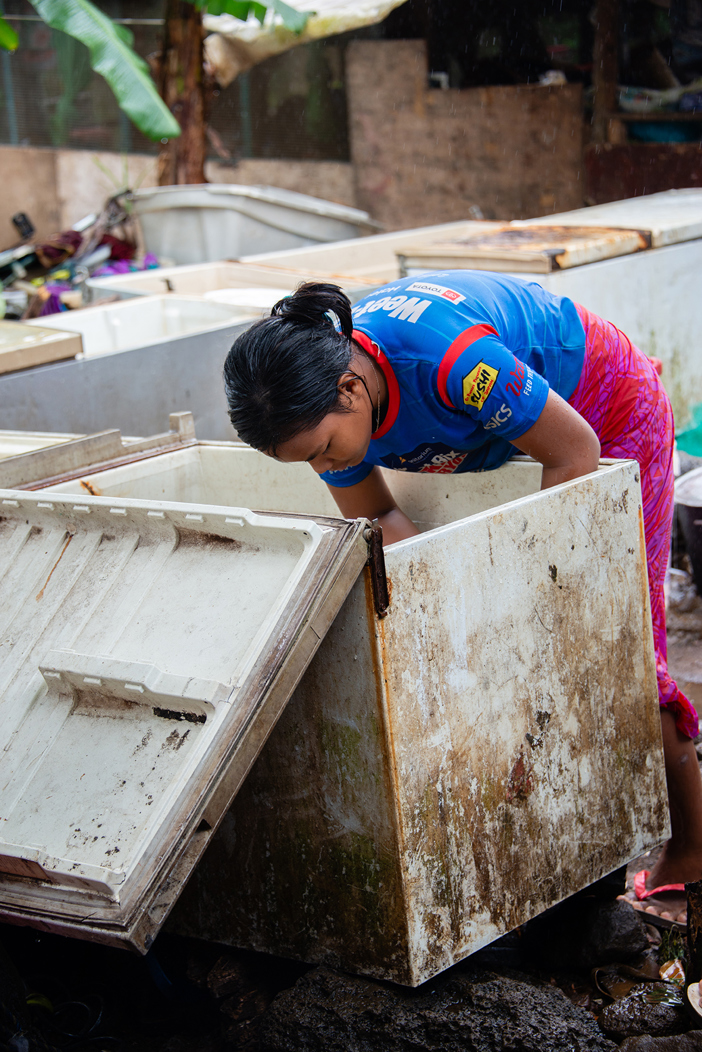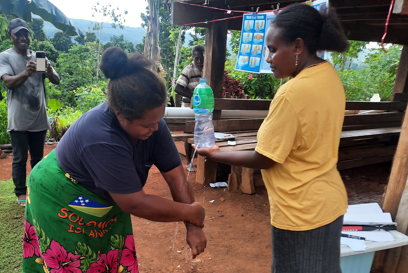As global average temperatures continue to rise, the frequency and intensity of extreme weather events, such as cyclones, floods, and droughts, have escalated worldwide. This is exacerbating global water insecurity. Not only has the global population been increasing rapidly for decades, but average water use has over doubled this rate.
World Water Day aims to raise awareness about the global water crisis and the 2.2 billion people living without access to safe water each day.
An alarming 4 billion people face severe levels of water scarcity for a minimum of one month every year.
A Crisis of Extreme Weather: Threats to Water Security
In 2024 alone, the UN’s World Meteorological Organisation listed over 150 unprecedented weather events. Topping this list were heat waves, heavy rain/floods, drought, and cyclones – all of which have a severe impact on water security.
This year’s theme for World Water Day: ‘Glacier Preservation’
Glaciers and ice sheets cover about 10% of the Earth’s land surface. These are melting at an unprecedented rate, and sea level rise is already having catastrophic effects on many of the communities we serve around the world. About one in ten people globally live in low-lying coastal areas, and are particularly affected. On top of this, the rate of sea level rise is increasing.
Sea level rise is particularly affecting our Pacific partners, and partners in the south of Bangladesh on the ground – both of whom we visited over the past year:

Leaia and her family outside their home in Samoa. Photo: Laura Womersley/Caritas Australia
Leaia’s Story: A Life-Changing Water Tank
In Samoa, access to clean drinking water remains a challenge for many families, including Leaia’s. Living with her five children and extended family, she struggled with daily water shortages. Their home was not connected to a piped water system, forcing them to rely on rainwater collected in old fridges.
During dry periods, Leaia and her children would walk to fetch water from a neighbour’s home – a tiring and time-consuming task that often left them with an insufficient supply. The unpredictability of rainfall, worsened by climate change, heightened her fears for her family's health and well-being.
Thanks to the support of Caritas Australia’s local partner, Caritas Samoa, a water tank was installed at Leaia’s home, ensuring a steady supply of clean drinking water. The tank has improved Leaia’s family’s access to water, and allowed her children to attend school regularly and maintain proper hygiene.
“We are very thankful and grateful for the water tank. It has helped us so much and made our daily life easier,” Leaia shared.
Since then, the support of people like you has also helped provide Leaia’s family with an additional tank, toilet, shower and septic tank. Watch this video to find out more.


Toefuata'iga’s Story: Clean Water for Education
For 13-year-old Toefuata'iga, attending school in Upolu was often a struggle due to water shortages. Without a reliable supply of clean water, students were frequently dismissed early, missing crucial lessons.
Teachers, too, bore the burden – leaving school premises to fetch water from nearby homes and using their own money to purchase it. The lack of water also led to unhygienic conditions, increasing the risk of dehydration and waterborne diseases like typhoid, further impacting student attendance and learning outcomes.
Caritas Samoa, in partnership with Caritas Australia, changed this by installing a 10,000-litre water tank at Toefuata'iga’s school. This initiative has transformed the learning environment, ensuring that students have continuous access to clean water for drinking, sanitation, and hygiene.
Attendance and enrolment rates have improved as parents feel reassured about their children’s safety and well-being. “Now that we have the water tank, things are so much better,” Toefuata'iga said.
“We can stay at school all day, and I get to spend more time learning and playing with my friends.” Through initiatives like these, the support of people like you continues to build stronger, healthier communities, where children access their right to education.

Monoranjon and Anita live in a coastal region in Bangladesh that is affected by climate change. Photo: Caritas Australia
Monoranjon’s Story: A Fight Against Climate Change and Water Scarcity
Monoranjon, a 47-year-old farmer from Bangladesh’s southwest deltaic region, has witnessed firsthand the devastating effects of climate change. Monoranjon struggles to secure water and sustain his livelihood through farming.
His village, like many others, faces extreme heat waves, cyclones, coastal erosion, and rising salinity levels that threaten both water security and agriculture.
The south of Bangladesh is particularly vulnerable to the effects of sea level rise, already inundating family homes, and leading to saltwater intrusion in what were once freshwater rivers.
When Caritas Australia visited last year, we heard recounts of families in the region strapping their kitchen tables to the ceilings, so they could use them as beds in their flooded homes.
With sea level rise leading to increased soil salinity, many farmers in the region have turned to aquaculture as an alternative income source. Thanks to Caritas Bangladesh’s Community Managed Sustainable Livelihoods and Resilience Program (CMLRP-II), Monoranjon has gained critical knowledge in climate-resilient farming, aquaculture, and livestock rearing.
Your support is helping empower people like Monoranjon to learn salt-tolerant vegetable cultivation and organic farming techniques, increase crop yields, provide for his family, and teach others in his community how to adapt. Additionally, he participates in local mangrove reforestation efforts, helping to combat coastal erosion and mitigate the impacts of storm surges.
Despite these efforts, the region faces an uncertain future. The combination of extreme weather, rising sea levels, and growing displacement threatens not only food security but also exposes vulnerable populations to exploitation and human trafficking. Without increased international support, millions like Monoranjon may soon face displacement and poverty on an unimaginable scale.
An Uncertain Road Ahead: How Will You Make a Difference?
While this World Water Day once again highlights a future of decreased global water security, your support can keep going towards empowering those on the front line of this, around the world. As climate change accelerates, so does the urgency to act. While adaptation to water insecurity is possible, it requires ongoing support, and investment.
The time for you to act is now – you can help empower the world’s most vulnerable communities to access safe water. Without intervention, millions will face a future of displacement, food insecurity, and vulnerability to exploitation.
Along with your generous support, this program is supported by the Australian Government, through the Australian NGO Cooperation Program (ANCP).

















